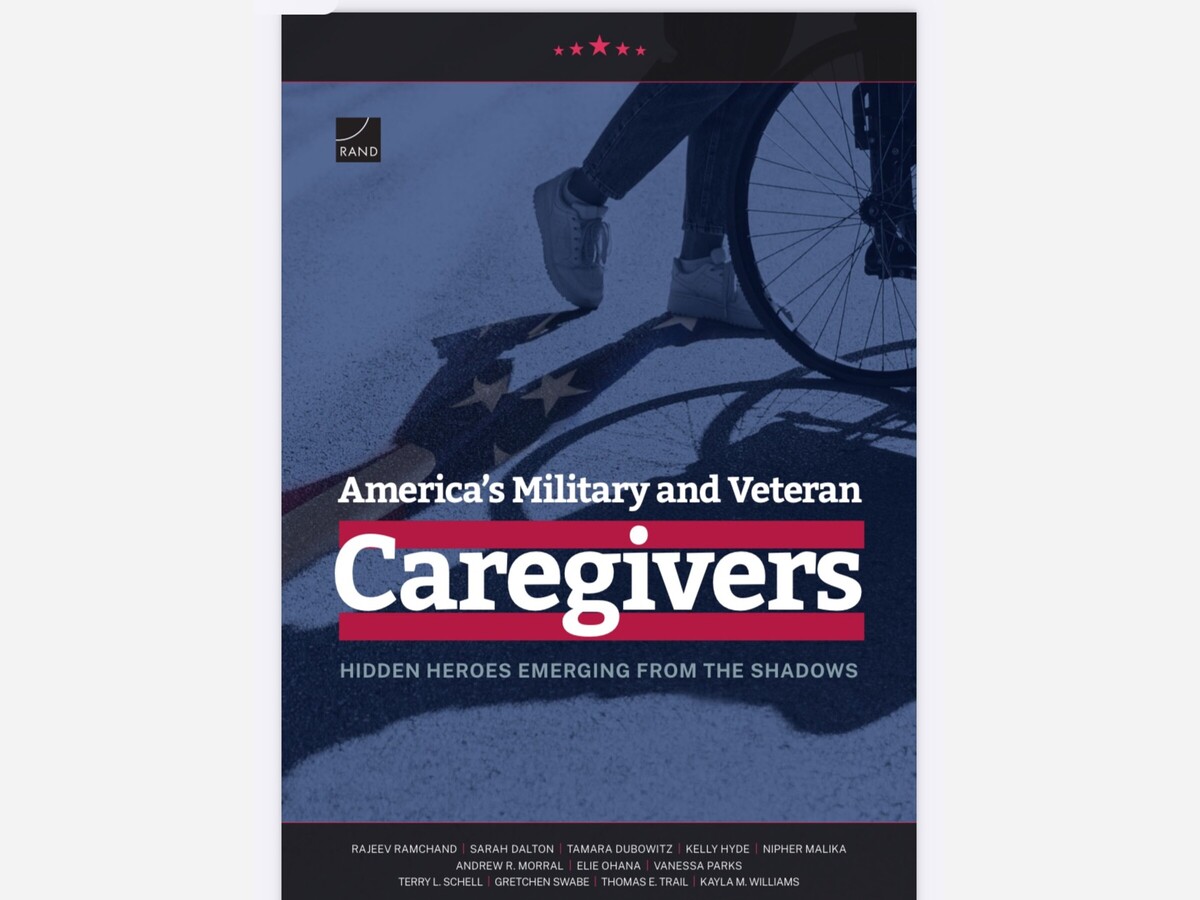Image


A Congressional Hearing on VA services and caregivers was held this week and a new study was released at that hearing with some difficult findings. The authors of the new study have produced new estimates of the number of adults caregiving in the United States today; investigated how those caring for wounded, ill, and injured service members and veterans compare with those caring for civilians and with non-caregivers; and share insights on the potential consequences of caregiving on caregivers' health, their economic security, and their families' well-being. They also propose recommendations to strengthen caregiver support.
Just a fraction of the nation's veteran caregivers receive assistance from the Department of Veterans Affairs, according to the report, presenting opportunities for the VA and for advocacy groups to help those bearing much of the burden alone.
According to VA data, 62,570 family caregivers are enrolled in the VA's Program for Comprehensive Assistance for Family Caregiving, an initiative that provides health care and financial compensation to veterans with combat injuries or related illnesses, while 25,000 receive support through the VA's Program of General Caregiver Support Services.
Given the small number of those served by the VA, the Rand researchers made recommendations designed to address the needs of all the the nation's military and veterans caregivers, to include increasing family access to mental health care, expanding work opportunities for caregivers or providing compensation for caregiving, expanding home health care and promoting work environments supportive of caregivers.
During a House Veterans Affairs Committee hearing this week on the VA's programs for caregivers, advocates and lawmakers discussed the possibilities of additional assistance, in the form of tax breaks for caregiver families, credits for Social Security for caregiving, and broader education on respite care services provided by the VA.
"A tax credit ... is a really good idea. I think it should be a tax credit that we did in the Rescue Plan, which gives folks the money up front and not having to wait or be required to do their taxes," said Rep. Julia Brownley, D-Calif.
Earlier this month, a dozen veterans organizations wrote to President Joe Biden asking him to accelerate the process for determining new eligibility criteria for the VA's Program for Comprehensive Assistance for Family Caregiving, a process that is now into its second year.
According to advocates, roughly 14,000 families face dismissal from the program by October 2025 depending on the final eligibility rules. During the hearing, Committee Chairman Rep. Mike Bost, R-Ill., questioned why the process has taken so long.
"The administration has dragged its feet on these changes, leaving thousands of caregivers in limbo," Bost said.
Colleen Richardson, executive director for the VA caregiver support program, said the proposed rule is with the Office of Management and Budget and should be released sometime this fall.
"When we opened this program up the first time in Oct. 1, 2020, we didn't get it quite right, and I don't want that to happen again," Richardson said. "Now that I'm leading the caregiver support program, I feel that it is my duty and obligation ... to get it right."
Lawmakers pledged to consider the recommendations, and advocates said that many of the suggestions could help the more than 91 million Americans who are caregivers, in addition to the 14 million supporting a military member or veteran.
"The reality is, without family caregivers, more Americans would have to rely on government programs for their care. We estimate that value of care being provided is about $600 billion a year," said AARP Kentucky State Director Troy Broussard, who testified at the hearing.
"I did not need to see a study to know how bad this problem is, but America needs to see it," Wounded Warrior Project CEO and retired Army Lt. Gen. Walter Piatt said during the conference announcing the Rand report.
The information in the report is derived from two sources. RAND researchers administered the 2023 RAND Caregiving Survey. The final analytic sample size was 2,946 respondents, including 513 military and veteran caregivers, and, for comparison, 1,205 civilian caregivers and 1,228 non-caregivers. RAND researchers also administered the 2022 RAND Veterans Survey, a survey of 1,100 veterans residing in the United States.
There are 14.3 million military and veteran caregivers, representing 5.5 percent of the U.S. adult population. There are an additional 91.3 million civilian caregivers (35.0 percent of U.S. adults) caring for wounded, ill, or injured civilian adults.
Across all caregivers, most (78 to 81 percent) spend between one and 30 hours per week providing care. Under 10 percent spend less than one hour per week, and 11 to 16 percent spend 31 hours or more per week caregiving.
The estimated aggregate economic value generated by military/veteran caregiving activities, which are largely uncompensated, ranges from $119 billion to $485 billion per year. Military/veteran caregivers incur an estimated $8,583 in annual out-of-pocket costs associated with their caregiving responsibilities. Military/veteran caregivers forgo an estimated $4,522 in annual household income.
The research, conducted by Rand Corp.'s Epstein Family Veterans Policy Research Institute.
To view the hearing visit https://youtu.be/IojOIf5W6Uc?si=ZKcmXXkMPOzPxTR_